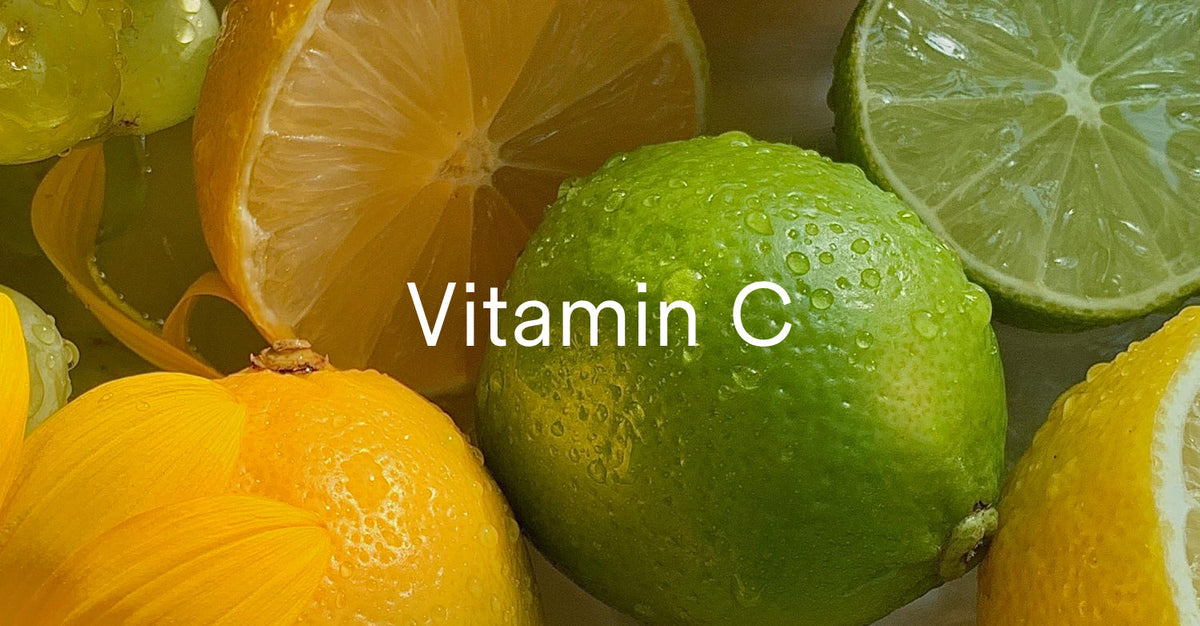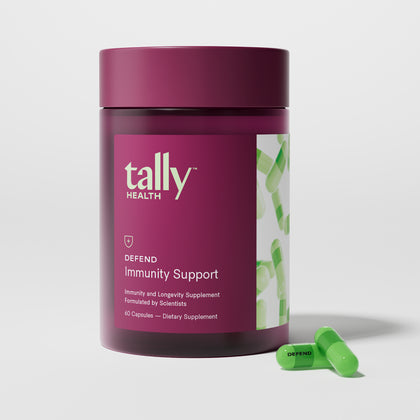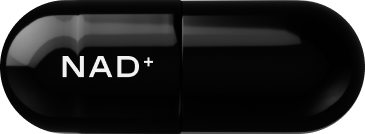

Vitamin C is one of the most popular and well-researched vitamins on the planet—and for good reason. This powerhouse antioxidant supports a healthy immune system, collagen synthesis, cellular repair, and even epigenetic health. But while most people focus on how much vitamin C to take, when you take it can also affect how your body absorbs and uses it.
In this article, we’ll explore the best time of day to take vitamin C, explain the key benefits of vitamin C supplementation, and show you how Defend by Tally Health, which contains 90 mg of vitamin C alongside other antioxidant and immune-supporting compounds, can fit into a well-timed longevity routine.
What Is Vitamin C?

Vitamin C (also known as ascorbic acid) is a water-soluble vitamin that cannot be made by our bodies and must therefore be obtained through diet or supplementation. It plays a critical role in:
Scavenging free radicals
Supporting the immune system
Synthesizing collagen, carnitine, and neurotransmitters
Regenerating other antioxidants (like vitamin E)
Promoting iron absorption
Maintaining epigenetic stability
Since the human body can’t store large amounts of vitamin C, regular intake is necessary to maintain optimal blood levels—especially during times of stress, illness, or aging.
Best Time to Take Vitamin C
So, when should you take your vitamin C to ensure optimal absorption for maximum benefit?

1. Morning: For Energy and Antioxidant Defense
Taking vitamin C in the morning can help combat oxidative stress caused by daily metabolic activity and environmental exposures like UV light and pollution. Because vitamin C also supports adrenal function and cortisol regulation, a morning dose may help you feel more energized and resilient throughout the day.
2. With Meals: For Better Absorption
Although vitamin C can be taken on an empty stomach, some people may experience mild stomach upset. Taking vitamin C with food can ease absorption and may help enhance iron uptake, especially from plant-based meals.
3. Split Doses: For Steady Blood Levels
Vitamin C is rapidly absorbed and eliminated. Taking smaller doses twice a day —such as morning and midafternoon—may help maintain more stable plasma levels throughout the day.
Bottom Line:
The best time to take vitamin C is in the morning with food—or twice daily in divided doses if your goal is sustained antioxidant support. If you experience any stomach discomfort, contract a health provider to better understand if vitamin C is right for you.
Key Health Benefits of Vitamin C

Vitamin C intake does much more than support your immune system. Here are some of the most compelling, research-backed benefits of this essential nutrient:
✅ Immune Support
Vitamin C enhances both innate and adaptive immunity, promoting the function of white blood cells like neutrophils, lymphocytes, and phagocytes during cold and flu season and beyond. It’s also been reported to reduce the duration and severity of respiratory infections, especially in individuals under physical stress.
✅ Antioxidant Protection
Vitamin C is a potent antioxidant that neutralizes free radicals and regenerates other antioxidants like vitamin E and glutathione. This is especially important in aging, where oxidative stress can damage DNA, proteins, and lipids.
✅ Collagen and Skin Health
Vitamin C is essential for collagen biosynthesis, making it vital for skin elasticity, wound healing, and tissue repair. It may also help protect skin from UV-induced photoaging.
✅ Brain and Mood Support
Ascorbic acid helps synthesize neurotransmitters like dopamine and norepinephrine. Low vitamin C levels have been linked to fatigue, poor mood, and cognitive decline in older adults.
✅ Epigenetic and Cellular Health
Recent research shows vitamin C is involved in epigenetic regulation, helping enzymes that modulate DNA methylation and demethylation. This may influence cellular aging, gene expression, and inflammation control.
Tally Health’s Approach to Smart Supplementation with Vitamin C

Food sources like orange juice or citrus fruits aren't the only ways to boost your vitamin C intake. Tally Health’s Defend supplement delivers 90 mg of vitamin C (100% of the daily value) alongside the powerful compounds vitamin D3, beta-glucan, zinc, and quercetin to support immune resilience and function. Designed by longevity scientists, Defend fits seamlessly into a morning supplement routine and provides:
A clean, bioavailable dose of vitamin C
Synergistic ingredients that support overall immunity
Antioxidant protection at the cellular level
Whether you’re traveling, in a high-stress season, or simply aiming to age well, Defend makes it easy to stay consistent with your daily vitamin C —at just the right time.
Conclusion

The best time to take vitamin C depends on your goals and your routine—but for most people, morning with food is a smart, effective choice. To maintain stable levels and maximize benefits, you might also consider a second dose later in the day.
For a scientifically designed solution, consider increasing your vitamin C intake with dietary supplements. Defend by Tally Health offers a targeted, effective dose of vitamin C alongside complementary compounds to support your immune system and healthy aging.
What is the best time of day to take vitamin C?
The best time to take vitamin C is in the morning with food—or twice daily in divided doses if your goal is sustained antioxidant support.
What are the main health benefits of vitamin C?
Vitamin C supports immune function, acts as a powerful antioxidant, promotes collagen synthesis and skin health, supports brain and mood, and helps regulate epigenetic and cellular health.
Should I take vitamin C with food or on an empty stomach?
Although vitamin C can be taken on an empty stomach, taking it with food can ease absorption and may help enhance iron uptake, especially from plant-based meals.
Recommended Supplements
Citations
Carr AC, Maggini S. Vitamin C and immune function. Nutrients 2017.
Padayatty SJ, Levine M. Vitamin C: the known and the unknown and Goldilocks. Oral Dis 2016.
Levine M, Wang Y, Padayatty SJ, Morrow J. A new recommended dietary allowance of vitamin C for healthy young women. Proc Natl Acad Sci U S A. 2001.
Pullar JM, Carr AC, Vissers MC. The roles of vitamin C in skin health. Nutrients 2017.
Lykkesfeldt J, Poulsen HE. Is vitamin C supplementation beneficial? Lessons learned from randomised controlled trials. Br J Nutr. 2010.
May JM. Vitamin C transport and its role in the central nervous system. Subcell Biochem 2012.
Michels AJ, Hagen TM, Frei B. Human genetic variation influences vitamin C homeostasis by altering vitamin C transport and antioxidant enzyme function. Annu Rev Nutr 2013.
Hemilä H. Vitamin C and infections. Nutrients 2017.
Jacob RA, Sotoudeh G. Vitamin C function and status in chronic disease. Nutr Clin Care 2002.
Carr AC, Rosengrave PC, Bayer S, Chambers S, Mehrtens J, Shaw GM. Hypovitaminosis C and vitamin C deficiency in critically ill patients despite recommended enteral and parenteral intakes. Crit Care 2017.
Hodges RE, Hood J, Canham JE, Sauberlich HE, Baker EM. Clinical manifestations of ascorbic acid deficiency in man. Am J Clin Nutr 1971.
Graumlich JF, Ludden TM, Conry-Cantilena C, Cantilena LR, Wang Y, Levine M. Pharmacokinetic model of ascorbic acid in healthy male volunteers during depletion and repletion. Pharm Res 1997.











